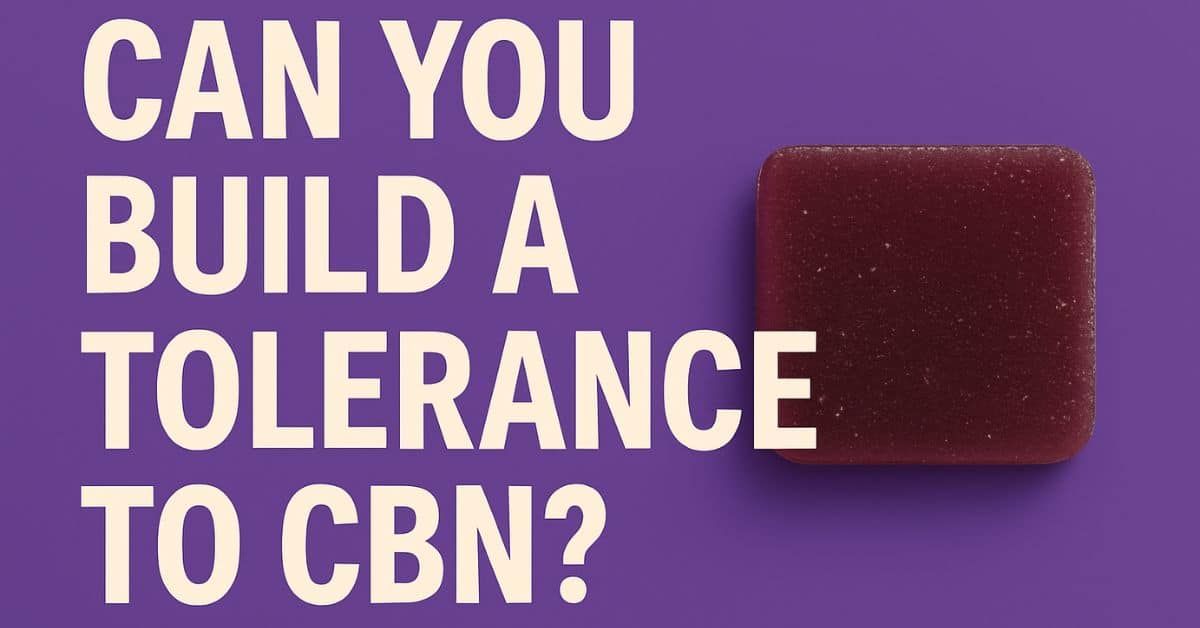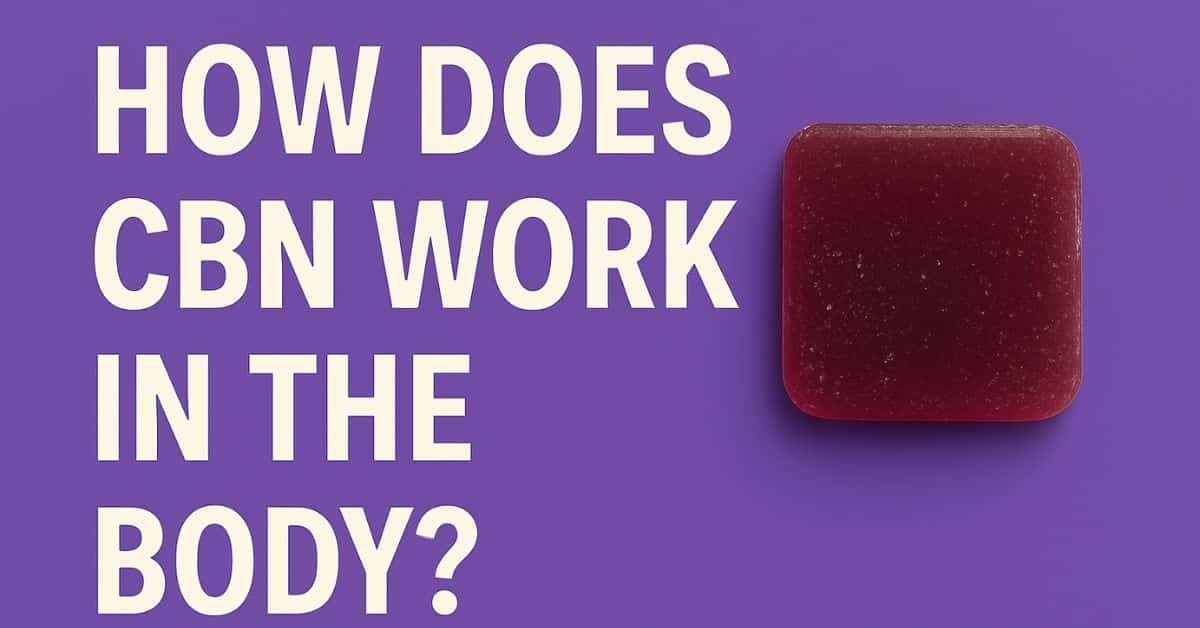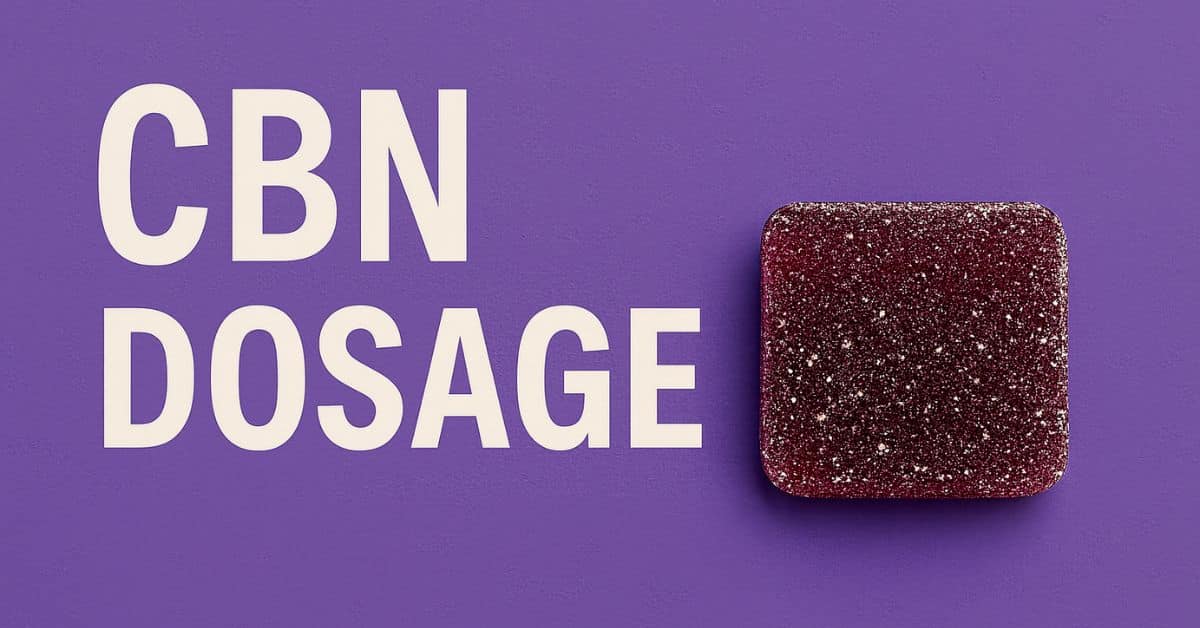Yes, it’s possible to build a tolerance to CBN over time, but it doesn’t appear to happen as quickly or as strongly as it does with THC. Tolerance simply means your body becomes less responsive to the same amount of a substance, often leading people to use more to achieve the same effects. With cannabinoids, how tolerance develops depends on dosage, frequency of use, and individual biology.
Unlike THC, which strongly activates the brain’s CB1 receptors and is known to cause rapid tolerance, CBN binds to those receptors only weakly. This suggests that any tolerance to CBN likely develops more gradually, especially when used consistently for sleep or relaxation.
Many Canadians report that CBN products continue to work effectively for months without needing to increase dosage, especially when paired with CBD or other cannabinoids.
What Is CBN?
Cannabinol, or CBN, is a naturally occurring cannabinoid that forms when THC ages and oxidizes. This process explains why older cannabis plants tend to contain higher amounts of CBN. Unlike THC, which is well known for producing a psychoactive “high,” CBN is only mildly psychoactive at most and is primarily valued for its relaxing and sedative-like properties.
How Does Tolerance Work with Cannabinoids?
Tolerance develops when the body becomes less sensitive to a substance after repeated exposure. With cannabinoids, this usually happens because the endocannabinoid system (ECS) adjusts to regular stimulation.
Where CBN fits in – CBN binds only weakly to CB1 receptors, so it doesn’t trigger the same rapid tolerance response as THC. Still, with consistent, long-term use, some adaptation is possible, especially if CBN is taken nightly for sleep.
THC and tolerance – THC strongly activates CB1 receptors in the brain, which can cause them to downregulate (or become less responsive) with frequent use. This is why THC users often find they need more over time to feel the same effects.
CBD and tolerance – CBD works differently, mostly by influencing the ECS indirectly instead of binding strongly to CB1 or CB2 receptors. Because of this, CBD has a very low risk of tolerance, and many people use it daily without needing to increase their dose.
Can You Build a Tolerance to CBN?
The evidence on CBN tolerance is still limited, but based on what we know about how cannabinoids interact with the body, the answer is yes, it’s possible to build some tolerance to CBN, especially with consistent, long-term use.
Signs You May Have Built a Tolerance to CBN
Since CBN tolerance is subtle compared to THC, it can sometimes be tricky to notice. Here are a few common signs that you may be developing a tolerance:
- Less noticeable impact – CBN feels less effective overall, even when combined with other cannabinoids like CBD.
- Weaker effects than before – The same dose of CBN no longer delivers the same calming or sleep-supporting benefits it once did.
- Increased dosage needed – You find yourself taking more puffs from a vape, more drops of oil, or more gummies than when you first started.
- Shorter duration of effects – CBN’s calming influence wears off faster than it used to, leaving you restless or awake sooner.
How to Manage or Prevent CBN Tolerance
If you find CBN becoming less effective over time, the good news is that tolerance can usually be managed or even reversed with a few simple strategies:
- Mindful Use – Instead of taking CBN out of habit, save it for when you truly need it — such as before bed or during high-stress evenings.
- Take Tolerance Breaks – Pausing use for a few days or a week allows your body’s endocannabinoid receptors to reset, restoring sensitivity.
- Use the Lowest Effective Dose – Start small and only increase if necessary. This prevents your body from adapting too quickly to higher amounts.
- Rotate Cannabinoids – Alternate between CBN, CBD, or blends. This variation may reduce the likelihood of receptor desensitization while keeping effects consistent.
- Choose High-Quality Products – Poorly formulated products may feel weaker over time, making it seem like tolerance is the issue. Always opt for lab-tested, accurately dosed CBN from licensed retailers.
Bottom Line
Yes, you can build a tolerance to CBN, but it develops much more slowly and less intensely than THC. Most people find that CBN products remain effective for sleep and relaxation even with regular use, and any tolerance that does appear is usually mild.
The key is to use CBN mindfully, stick to the lowest effective dose, rotate with other cannabinoids like CBD when possible, and take occasional breaks to keep your body’s endocannabinoid system responsive.







